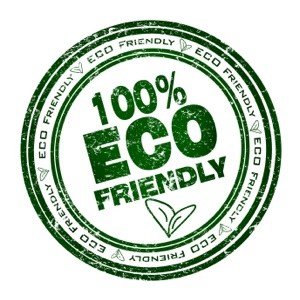
"Surge protectors that cut 25% off your power bill!"
"Paint additives improve home insulation!"
"Organic cigarettes!"
"Energy-star caulking!"
Sound like hogwash? Actually, it's called "greenwash," a term used to describe inflated, misleading, and sometimes downright untrue claims about a product's environmental performance. Greenwashing is driven by consumer interest in eco-friendly products and energy efficiency. Everyone wants a piece of the eco-friendly pie! And now it's fueled even more by federal stimulus funding and other incentives for businesses that generate green jobs. Not only do these misleading claims led to unrealistic expectations on energy, cost savings, and sustainability, they hurt the companies that produce legitimate environmentally-friendly products for the marketplace.
Before purchasing a product that claims to be green, consider its life-cycle. How were the raw materials used to make the product grown or obtained? What negative impacts might its manufacturing process have on the environment? Think about how YOU will use the product. Does it offer more than one environmental benefit (e.g. Certified Organic and Fair Trade Certified)? Can it be reused and/or disposed of in an environmentally responsible way?
Does the manufacturer back up environmental claims with proof? A company should be able to produce evidence to support their claims, or at least be certified by a reliable third-party. Try checking the company's website or asking for on-site product information from store employees.
Pay attention to a product's larger impact. Some environmental claims are true within defined categories, but are really designed to distract consumers from considering the larger risk the product poses to themselves and the environment (e.g. organic cigarettes or a "green" mansion).
In North America, the US Federal Trade Commission and the Canadian Consumer Affairs Office have issued guidelines for the use of environmental claims. Unfortunately, there isn't one uniform label to look for when comparing green products. Consumer Reports' Green Choices website provides consumers with excellent information on existing "green" labels.
Consumer Reports Greener Choices: www.greenerchoices.org
Wow. Great info. I will read those labels more carefully!